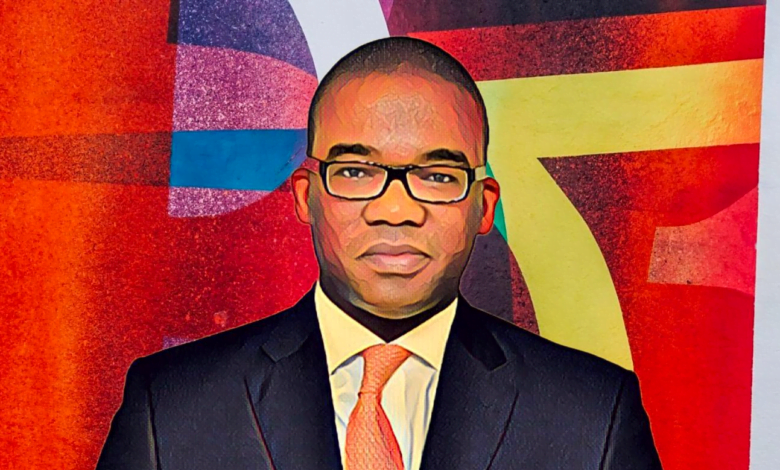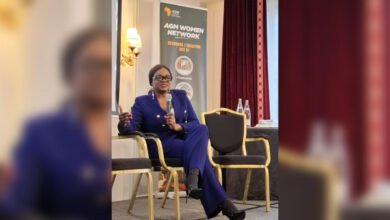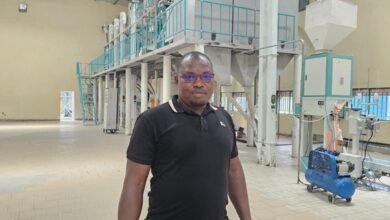Jean-Marc Savi de Tové : “We have taken on the challenge of raising capital in Africa and around the world and making it available to high-potential SMEs”
Jean-Marc Savi de Tové is co-founder of one of the first and still rare pan-African private equity funds, Adiwale Partners. Launched in 2016, it focuses in particular on African SMEs, whose ecosystem and specificities he is familiar with. For ANAMag, he analyses the issues surrounding their financing and the solutions to be recommended.

Could you introduce us to Adiwale Partners, the first sub-regional private equity fund management structure created in francophone West Africa?
Adiwale Partners is the first independent private equity fund management structure created by French-speaking investors to support SMEs in West Africa. It was founded by Vissého Gnassounou and myself in 2016, following two observations: 1) companies in the region, starting with SMEs, are severely lacking in equity and operational support for their growth, and 2) the few private equity players in the region are essentially pan-African or European players with subsidiaries in UEMOA, which doesn’t always give us a good understanding of the growth dynamics and needs of these companies. Vissého and I have over 50 years of combined investment experience: venture capital, private equity, listed markets, fund of funds (investment in investment funds) and finally LBO financing. This experience has been gained in our target region, the French-speaking countries of West Africa, but also in the global financial centers of New York, London and Paris. We have also taken on the challenge of sourcing capital in Africa and around the world to make it available to high-potential SMEs in most sectors of our economies. We are based in Abidjan, Côte d’Ivoire, from where we cover the region.
How does your organization help SMEs?
Adiwale Partners talks to business owners and, depending on their equity needs, invests between €3m and €8m to take a minority position in their capital. Of course, the owner retains control of the business, but our team and sometimes external consultants are heavily involved in helping to create value, working closely with the majority shareholder. The real challenge for our SMEs is managing growth, which requires them to make progress in all areas of their business at the same time. Externally, this means conquering new markets, developing new products and dealing with a much more complex transactional environment, for example in terms of delivery and payment methods. Internally, to keep up with these new demands, SMEs need to recruit better trained, more experienced staff, which means greater training needs, career management and remuneration. SMEs also need to improve their environmental practices. As you can see, without financial and operational support it’s very difficult to meet the challenge in a competitive environment. The view that « we’ve always done it this way », which is still quite common in some SMEs, is no longer possible. We all need to be more agile and adaptable. Our role is to support them in all these areas, not just financially, to enable them to capture a market that is indeed growing.
Why and how are you better placed to meet the needs of African SMEs?

The first is that we are African entrepreneurs and financiers. Most of our investment experience is with SMEs. We are an SME ourselves. Our fund is tailored to support SMEs, particularly the mid-market. Our approach and processes take into account our local and international DNA and our intimate understanding of how an SME works, especially a family-owned one. An SME is an orchestra, and you need not only the ambition and talent of the conductor, but also the quality of all the musicians and instruments. The right formula is: HR x HR x tools. What we do is agree with them on a timetable for improving the organization of their business. Another important element is the speed with which investment decisions are made by an investment committee of professionals who understand our environment.
300 billion dollars is the financing gap for African SMEs. What innovative mechanisms can be developed to bridge this gap?
The financing gap for African SMEs is indeed enormous, although it remains difficult to assess. There is often a tendency to think that financial innovation is the only way to bridge this gap, but on closer inspection we see that it is mainly a matter of making good use of the instruments that already exist. A simplistic example, but one that speaks for itself, is that of the entrepreneur who is looking for funding, but who is absolutely unwilling to provide his bankers or investors with transparency about his accounts and his business. Transparency creates trust and, in turn, financial value for the company being financed and, therefore, for its shareholders. Most of the support, SME and investment tools already exist and have worked well in Africa and elsewhere. Intermediation needs to be strengthened, from operational support to fundraising. Basically, to light an electric lamp, you need a battery or some other form of electricity generation, but you also need good wiring.
Finally, what are your recommendations for consolidating the growth of African SMEs?
Africa is a continent of growth. So, our SMEs are already operating in a favorable environment. It may be shocking to say this, but the challenges are enormous. They start with the ability of governments to create an enabling environment for private sector development. The bottlenecks are generally well known, but improving the business environment is often hampered by administrations that are still too slow to take decisions, interests that run counter to the common good, and so on. Significant progress has been made in some countries over the years, particularly in dispute resolution, legal protection and property rights.
At the level of enterprises themselves, greater professionalism in management is an absolute necessity for growth. Strengthening human capacity, putting the right people in the right places, helping our schools and universities to provide better training, and so on. Finally, for the conductor of the orchestra, the entrepreneur, we need to be convinced that you can’t make good music with an excellent saxophonist and a bad percussionist, and you can’t make very good music with musicians of average quality.
On the financial side, in addition to better capitalized banks with more sophisticated risk assessments, we need more long-term capital and a degree of flexibility in the implementation of products for SMEs. There also needs to be greater diversification in the investment of collected savings (insurance companies, social security funds, etc.). Local savings are perhaps a little too concentrated in government and real estate and not enough in the private sector as a whole. I don’t know of any country in the world where the state has proven to be a better investor than the private sector.






